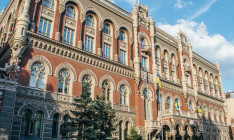Technology
ReplacementUkrainian Intertelecom in Crimea is turning into a Russian entity

A new Russian telecom company International Telecommunications LLC appeared in Crimea. It registered three licenses for data transfer, mathematical services and allocation of communication channels for lease with Roskomnadzor (Federal Service for Supervision of Communications, Information Technology, and Mass Media) for a term of five years starting October 20, 2014.
The company has the same name as the largest Ukrainian CDMA (3G) operator Intertelecom. Only the owners of the two companies are different: the Ukrainian operator is owned by Viktor Hushan (President of Tiraspol Group Sherif), the offshore company Odinaco Ltd (Cyprus) and several other Ukrainian individuals, while the new Russian Intertelecom, according to the data of the company register SPARK, is registered under Vyacheslav Chernikevich. Earlier, an individual with the same name and surname worked as a commercial director of Interdnestrcom, a sister company of the Ukrainian Intertelecom in Transdnistria.
Yesterday, an employee of Interdnestrcom, who answered Capital’s call, said Chernikevich no longer works for the company.
The management of the Ukrainian Intertelecom and its press service could not be reached for commentary. An employee of the contact center, however, explained that if an agreement was to be signed with Intertelecom for the provision of communications services in Crimea and Sevastopol, there was a separate legal entity for that. Moreover, Intertelecom has a separate website for Crimean subscribers at intertelecom.ru.com, where addresses of service centers in Sevastopol and Crimea are listed.
The last one to go
Intertelecom has as of late been the most stable operator in Crimea from the standpoint of uninterrupted provision of services. Another CDMA operator Telesystems of Ukraine (TM PEOPLEnet) was the first among mobile telecommunications operators to suspend its operations on the peninsula back in June. In August MTS Ukraine and Kyivstar suspended provision of services in their Crimean networks, although the network of the latter can still be screened by mobile phones.
In the beginning of autumn the Astelit (life:)) network began experiencing problems. At the moment, its operations in Crimea are rather unstable and not everywhere on the peninsula. Trimob (3G operator of Ukrtelecom) hung in there until the very last moment without particular interruptions. However, recently, as a result of a conflict with local authorities of Sevastopol, Ukrtelecom’s infrastructure was transferred to Sevtelecom, while Trimob, just as the Ukrainian branch of Ukrtelecom in Crimea, seized to exist in the city.
Noteworthy, Intertelecom is not the only company that started working in Crimea through Russian legal entities or in partnership with them. In summer, SCM created a Russian legal entity on the peninsula through an offshore company registered in Cyprus under the name Our Telecom, which was to replace Ukrtelecom. Volya agreed with a Russian company on the ‘leasing’ of the Crimean network and the use of Volya’s brand name.
Technological maze
While Intertelecom made its best efforts to continue operating on the peninsula, it may soon experience problems in terms of the use of the radio technology. When PEOPLEnet was leaving Crimea, its general director (now president) Mykhailo Paikin told Capital that in Russia the frequencies within the range of 800 MHz are being used by the military and aviation. That is why it will soon become impossible for the Ukrainian companies using the CDMA-800 standard to continue working on these frequencies. Russia has long abandoned this technology as it is outdated.
A manager of PEOPLEnet says that it would be possible to continue work only by using new equipment and obtaining corresponding frequencies on the peninsula. The company, however, does not have the funds for such an upgrade. The Russians calculated that in order to switch to a new range both Intertelecom and PEOPLEnet would need to spend US $15-20 mn. There is, however, another option – the LTE-800 standard of wireless communication is being developed in Russia on 800 MHz frequencies. For this reason, it is quite possible that the new legal entity will start providing these services in Crimea.












 of the agreement of syndication with Financial Times Limited are strictly prohibited. Use of materials which refers to France-Presse, Reuters, Interfax-Ukraine, Ukrainian News, UNIAN agencies is strictly prohibited. Materials marked
of the agreement of syndication with Financial Times Limited are strictly prohibited. Use of materials which refers to France-Presse, Reuters, Interfax-Ukraine, Ukrainian News, UNIAN agencies is strictly prohibited. Materials marked  are published as advertisements.
are published as advertisements.